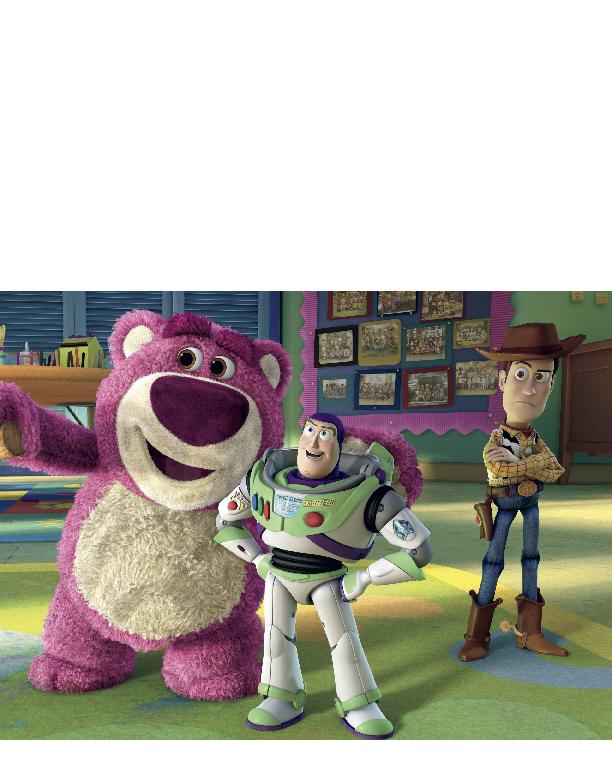
coloring between the lines. It was an agoniz-
ing, years-long struggle for everyone."
other toys' owner -- could decide to dispose
of his beloved toys now that he is all grown
up. For several days, Arndt struggled with an
early sequence in the film that sets up this
threat for the audience. He kept toying with
scenes in which the concept of disposing of
old toys is discussed by the film's human char-
acters but Arndt ultimately felt it was too ex-
positional -- until his train of thought was
interrupted by a loud alarm that signaled a fire
drill at Pixar.
kind of as a way to make conversation," Arndt
recalls, "I explained my problem and he im-
mediately suggested that I set up the threat
from the toys' perspective." Stanton thought if
one disloyal toy was freaking out and said,
"Screw it! Andy's grown up and I'm getting out
of here before I'm thrown away," that the
threat would have greater impact. That simple
idea led to Sarge delivering those lines as he
jumped out the window with his Army men.
"That's a visual way of setting up the idea and
having it take the form of a dramatic argument
between two characters -- Sarge and Woody
-- rather than a limp line of exposition from
one of the human characters," Arndt says.
"And that was a problem I had been struggling
with on my own for about a week that got
solved in 10 seconds because you're all in this
building and you just get those happy acci-
Andrew is a really irritatingly smart guy."
Arndt suffered mightily over a sequence the
production team called "grown up," which
was a scene designed to catch the audience up
on the 10 years that elapsed between Toy Story
2 and 3. "There's just a ton of stuff you have to
deal with right away," Arndt says. "Character
exposition, relationships, expectations for the
future and various disagreements. It was just a
nightmare trying to figure out what all that
stuff is in the first place and then how to com-
municate it as quickly as possible."
very complicated," he explains, "I'll make a list
of everything that needs to happen in that
scene and then try to establish the proper